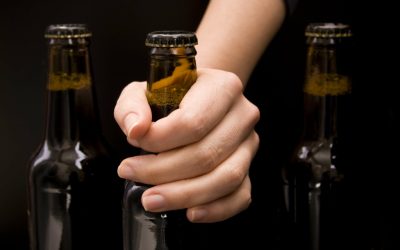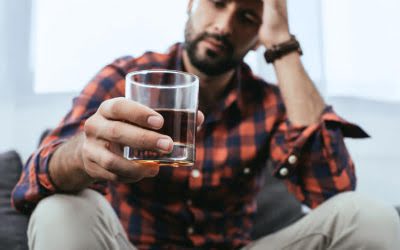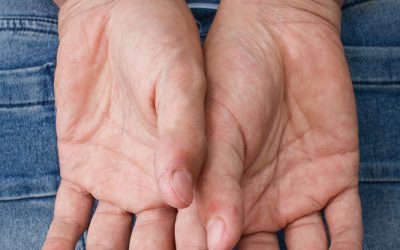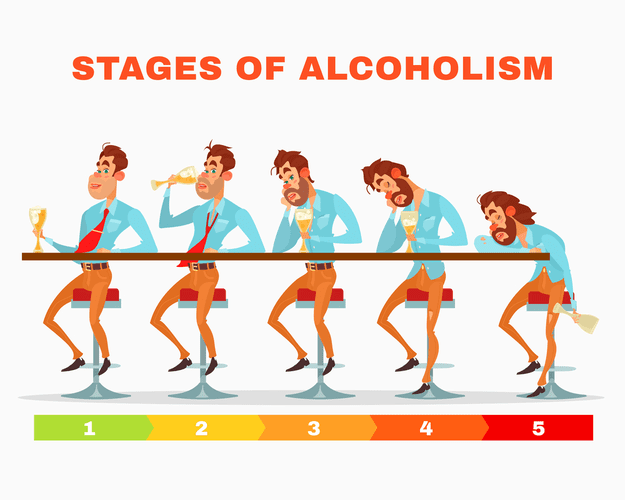Contents

We’re here for you and are excited to be on this journey with you. Education about alcoholism and alcoholism treatment will occur, sometimes including books to read, written assignments and behaviors to initiate. Release of program participant information, current or former, to anyone outside of the N.C.

Certain treatment medications and devices reduce these symptoms, which makes it easier to stop the drug use. Accelerated’s physician staff consists of MDs that specialize in both traditional addiction medicine as well as functional and integrative addiction medicine. Dr.Tommie Richardson is the Medical Director at Accelerated Recovery Centers and is a member of the American Society of Addiction Medicine. He has practiced on the leading edge of addiction medicine for more than two decades.
We reject the institutional view that you are in any way powerless or that you should be defined by your past alcohol use through the prism of alcoholism. We believe that you are powerful in every respect and that when your power is focused, there is little that you can not accomplish. Undergoing alcohol detox or an inpatient treatment program. If you’re at this stage of your treatment for alcoholism, outpatient treatment can help you transition back into a normal lifestyle while avoiding a relapse. Outpatient treatment, on the other hand, can be extremely beneficial in cases in which, generally speaking, there is not an immediate or life-threatening risk. But the lack of residential stay does not mean outpatient therapy is not serious.
Other NIAAA Sites
Overcoming alcohol use disorder is an ongoing process, one which can include setbacks. Matching the right therapy to the individual is important to its success. It may also be helpful to determine whether treatment will be adapted to meet changing needs as they arise.
- Accelerated provides each private client with a continuum of services that integrates every tool that is safe, efficacious, credible and necessary to solve your problem with alcohol dependence.
- The last date these Terms of Use were revised is set forth below.
- By assessing whether and how the program or provider measures success, you may be able to better compare your options.
- NIAAA and other organizations are conducting research to identify genes and other factors that can predict how well someone will respond to a particular treatment.
- Accelerated also has relationships with various detoxification facilities in order to provide financial alternatives to our clients.
In some cases, outpatient therapy can involve over nine hours of treatment weekly. Many people with alcohol problems and their family members find that participating in support groups is an essential part of coping with the disease, preventing or dealing with relapses, and staying sober. Your health care provider or counselor can suggest a support group.
Your provider can help you get screened for substance use problems and related issues —and can offer treatment and support as needed. Instead, these are groups of people who have alcohol use disorder. Examples include Alcoholics Anonymous, SMART Recovery, and other programs.
Certain medications have been shown to effectively help people stop or reduce their drinking and avoid relapse. All approved medications are non-addictive and can be used alone or in combination with other forms of treatment. Call our hotline today to learn more about your treatment options. Our admissions navigators are available 24/7 to speak with you and there is no obligation to make any decisions right away.
Alternative/Holistic Therapies
AAC offers a range of treatment centers across the U.S. so that you can work toward recovery in a setting that best fits your needs. We are also equipped to treat co-occurring disorders throughout our network of facilities via an integrated approach to treatment. No matter which treatment for alcoholism is chosen, support from those around the alcoholic is critical for successful treatment of alcoholism. Science has taught us that stress cues linked to the drug use , and contact with drugs are the most common triggers for relapse. Scientists have been developing therapies to interfere with these triggers to help patients stay in recovery.

Medically-directed 24-hour services; may manage withdrawal. Low or high intensity programs in 24-hour treatment settings. Research shows that most people who have alcohol problems are able to reduce their drinking or quit entirely. The anti-smoking drug varenicline significantly reduced alcohol consumption and craving among people with AUD. Ultimately, there is no one-size-fits-all solution, and what may work for one person may not be a good fit for someone else. Simply understanding the different options can be an important first step.
In an emergency? Need treatment?
But in general, according to the National Institute on Drug Abuse, an outpatient treatment is one that does not require hospitalization or a stay in a “residential” setting. Frequently, outpatient programs involve group counseling, and some may involve intensive treatment during the day, without an inpatient stay. A dual diagnosis – also known as co-occurring disorders – means that a person is struggling with both a substance use disorder and a mental health condition. Dual diagnosis treatment programs can address both issues to help a person through recovery, which may include the use of medication and therapy. Physical fitness is an essential component of the alcohol rehabilitation process. In order to achieve optimal results, it is critical that an individualized plan be created for you, taking your needs, desires and current fitness level into account.

Relapse rates for drug use are similar to rates for other chronic medical illnesses. If people stop following their medical treatment plan, they are likely to relapse. Alcohol use disorder commonly occurs along with other mental health disorders.
They are also sometimes utilized after completion of an inpatient program (i.e., step-down treatment) as a way of easing the transition back to an individual’s everyday life. Twelve-step facilitation is an individual therapy typically delivered in 12 weekly session to prepare people to become engaged in 12-step mutual support programs. 12-step programs, like Alcoholic Anonymous, are not medical treatments, but provide social and complementary support to those treatments.
Gabapentin, a medication used to treat pain conditions and epilepsy, was shown to increase abstinence and reduce heavy drinking. Those taking the medication also reported fewer alcohol cravings and improved mood and sleep. Disulfiramblocks the breakdown of alcohol by the body, causing unpleasant symptoms such as nausea and flushing of the skin. Those unpleasant effects can help some people avoid drinking while taking disulfiram.
Mutual Support Groups and 12-Step Substance Abuse Treatment Programs
Accelerated Recovery provides a plethora of additional services as needed to ensure your success. Integrative health services with long term follow up can also be provided at the client’s request. Accelerated does not accept insurance payments, nor do we file insurance claims on behalf of our clients. Clients can, however, take advantage of third party financing alternatives which make the cost of treatment very affordable on a monthly basis. Various addiction treatment programs can help treat drug and/or alcohol addiction.
Alcohol-related problems—which result from drinking too much, too fast, or too often—are among the most significant public health issues in the United States. Join our online community to learn more about addiction and treatment. Please remove any contact information or personal data from your feedback. Drug addiction therapy (e.g. Dialectical Behavioral Therapy / DBT). Learn more about VA services to help support Veterans at risk of suicide and their families.
Scientists are working to develop a larger menu of pharmaceutical treatments that could be tailored to individual needs. As more medications become available, people may be able to try multiple medications to find which they respond to best. The U.S. Food and Drug Administration has approved three medications for treating alcohol dependence, and others are being tested to determine whether they are effective.
Whether it’s for you or someone you love, choosing where to seek sober living houses for addiction recovery treatment, what type of care you need, and what daily life will look like post-treatment can make the process seem even more challenging. Most treatment programs fail because they treat alcohol dependence as an acute social condition. At Accelerated, we succeed by creating long term healthcare alliances with our clients, providing support to them when and where it is needed. We create client partnerships and provide remote support, anytime and anywhere, for a minimum of six months. Using secure video conferencing and other patented technologies, we work together with you to avoid and manage though any potential risk of relapse. It makes sense for you to have access to the same expert resources, not just when you are taking time away from your normal life, but when you return home and need support the most.
Substance Abuse and Addiction Home
And you may need tests to identify health problems that may be linked to your alcohol use. For more information about treatment options, see NIAAA’s Treatment for Alcohol Problems booklet. Regardless of where or how you seek treatment, it’s important to look for approaches that are “evidence-based.” This means the treatments are backed by large, well-designed studies. Find doctors with addiction specialties hereand ask office staff whether they offer telehealth services.
The newer types of these medications work by offsetting changes in the brain caused by AUD. Due to the anonymous nature of mutual-support groups, it is difficult for researchers to determine their success rates compared with those led by health professionals. If you have any of these symptoms, your drinking may already be a cause for concern. The more symptoms you have, the more urgent the need for change.



